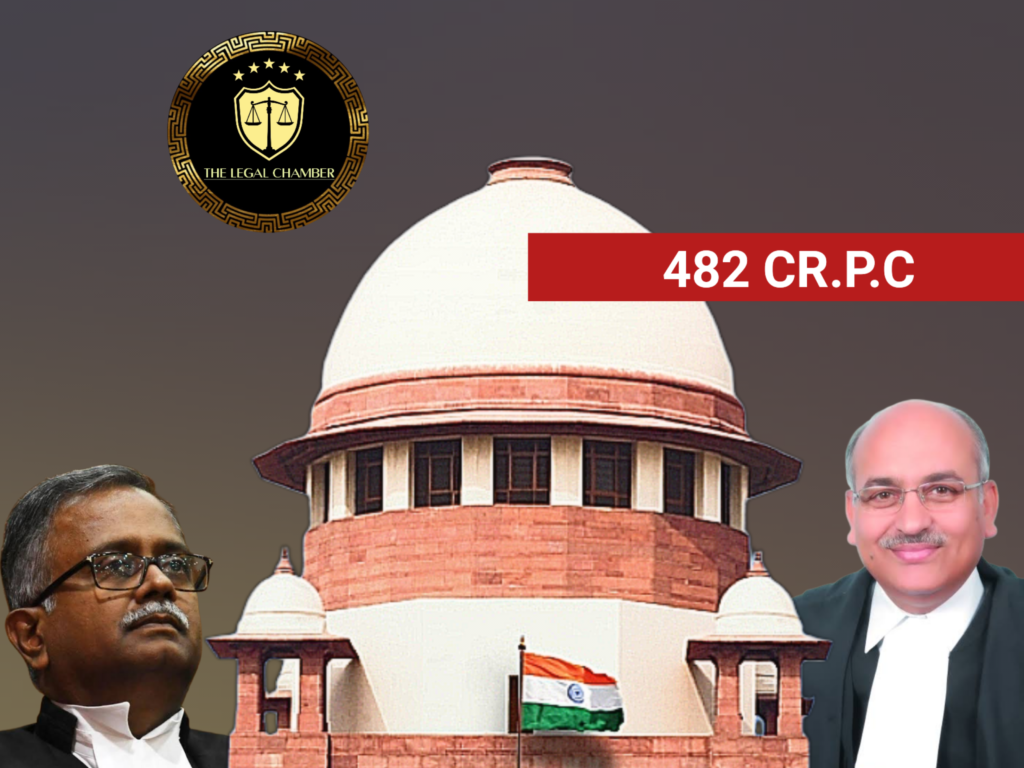
The Supreme Court quashed an FIR alleging cheating (Section 420 IPC) and criminal breach of trust (Section 406 IPC), holding that unpaid export transactions constituted a civil dispute, not a criminal offense. The Court emphasized that mere breach of contract, without dishonest intent at inception, cannot attract criminal liability. It ruled that the exporter (M/s. Oswal Overseas), not the accused, was the entrusted party, and the complainant failed to establish fraudulent inducement or entrustment under Sections 405/415 IPC. The judgment reaffirmed that criminal proceedings cannot remedy purely contractual disputes.
Facts Of The Case:
The case involved a business dispute between Ashok Kumar Jain (appellant), director of a Sri Lankan export-import firm, and a Gujarat-based textile trader (respondent no. 2) operating as “Ansh Prints.” In March 2012, the parties agreed to export sarees through M/s. Oswal Overseas, an intermediary with an export license, since the respondent lacked one. Between October 2013 and March 2014, the respondent shipped goods worth Rs. 34.71 lakh to the appellant via Oswal Overseas, with payment promised within 60–90 days.
When payments were delayed, the respondent visited Sri Lanka in 2016, where the appellant assured repayment but later stopped responding. The respondent then filed an FIR in 2017 alleging cheating (Section 420 IPC) and criminal breach of trust (Section 406 IPC), claiming the appellant fraudulently induced him into the transaction. The Gujarat High Court refused to quash the FIR, prompting the appellant to approach the Supreme Court.
The apex court examined the contractual nature of the dispute, noting the goods were formally exported through Oswal Overseas, which bore primary liability. It held that non-payment, without proof of dishonest intent at the outset, constituted a civil breach, not a criminal offense, and quashed the FIR to prevent abuse of the legal process.
Procedural History:
The case originated with the filing of FIR No. I-06 of 2017 at Salabatpura Police Station, Surat, by the second respondent against the appellant under Sections 406 (criminal breach of trust) and 420 (cheating) of the IPC. The appellant then approached the Gujarat High Court under Section 482 of the CrPC seeking quashing of the FIR, which was dismissed through an impugned order. Challenging this dismissal, the appellant filed a Special Leave Petition (SLP (Crl.) No. 1850 of 2022) before the Supreme Court, which granted leave and converted the petition into Criminal Appeal No. [X] of 2025.
The Supreme Court, after examining the allegations and documentary evidence, ultimately allowed the appeal, set aside the High Court’s order, and quashed the FIR, holding that the dispute was purely civil in nature and did not warrant criminal prosecution. The judgment emphasized the distinction between contractual disputes and criminal offenses, reinforcing the principle that criminal remedies cannot be invoked for breach of contractual obligations.
Court Observation:
The Supreme Court made several key observations while quashing the FIR. It emphasized that the dispute was fundamentally contractual in nature, involving unpaid dues for exported goods, rather than constituting criminal offenses under Sections 406 or 420 IPC. The Court noted that the transactions were formally conducted through M/s. Oswal Overseas, the licensed exporter, which created privity of contract between the exporter and appellant, not directly with the complainant.
It observed that the essential ingredients of criminal breach of trust – particularly “entrustment” of property to the accused – were absent, as the goods were entrusted to the intermediary exporter, not the appellant. Regarding cheating allegations, the Court found no evidence of fraudulent intent at the inception of the transaction, which is crucial for establishing the offense under Section 420 IPC. The judgment reiterated the well-established legal principle that mere breach of contract, without proof of dishonest intention from the beginning, cannot be converted into a criminal offense.
The Court cautioned against using criminal proceedings as a shortcut for resolving purely civil disputes, noting that such misuse amounts to an abuse of the legal process. These observations reaffirmed the distinction between civil wrongs and criminal offenses in commercial transactions.